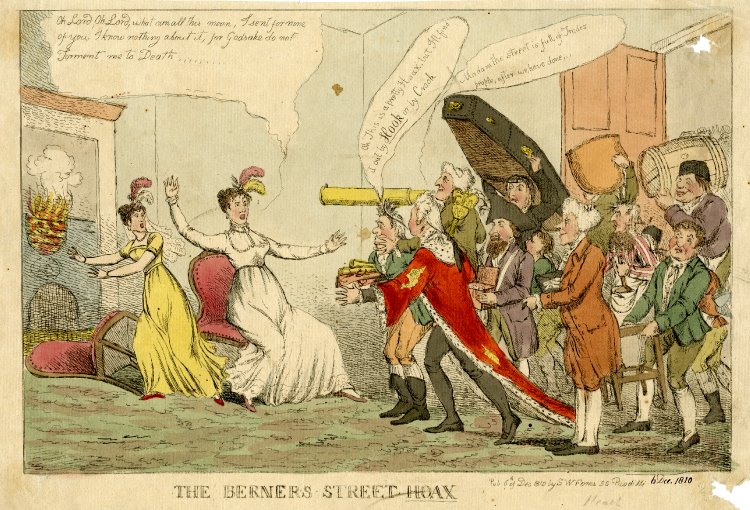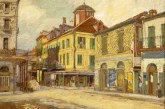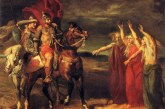
The Berners Street Hoax was thought up by Theodore Edward Hook, an English composer and novelist. The hoax is named after Berners Street in London, a quiet and peaceful street inhabited by well-to-do families.
It appears that these very qualities bored Hook, who made a bet with his friend, the architect and writer Samuel Beazley. He claimed that he could “in a day, make Berners Street the most talked-of place in London.” Beazley took him up on the bet, and Hook wrote around 4,000 letters in the name of the wealthy widow Mrs. Tottenham (it is not known why she was chosen as the victim). Each of them was addressed to a certain tradesman, servant, or professional, and requested them to come to her home at 54 Berners Street on 26 November 1810.
Soon after dawn at the appointed day, a wagon-load of coal arrived at the address. It was followed by a delivery of furniture, then a hearse with a coffin. After that, various deliveries were made, including various types of food (including wedding cakes and 2,500 raspberry tarts), liquor, musical instruments (including an organ) and flowers.
They were in turn followed by all sorts of professionals, including doctors, dentists, brewers, hairdressers, tailors, chimney sweeps, housemaids, priests, etc. The last to arrive were several prominent dignitaries, including the Archbishop of Canterbury, the Lord Mayor of London, a governor of the Bank of England, the Duke of York, and the Lord Chief Justice.
So as not to miss anything, Hook and a few friends acquired lodgings at the house across the street. The street was soon filled with disappointed people, and traffic was completely blocked due to them and the large number of vehicles and deliveries there. Crowds of people also formed around the address, curious about what caused the disorder. The police tried to restore order, but the chaos persisted until late in the evening.
While many found the incident amusing, the material damage alone was not trivial. While Hook was suspected of initiating the hoax, there was no proof and he denied it and left London for a while, allegedly for his “health” (which was technically true, just not in the way he meant it!). Hook only confessed in 1836, and in an indirect way – through a character in one of his novels.




